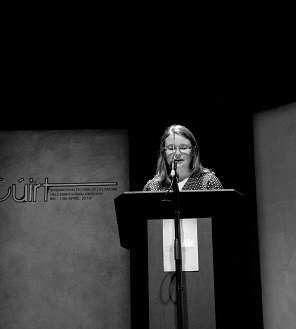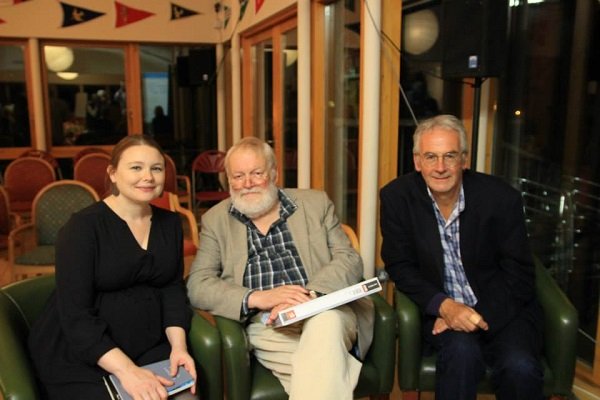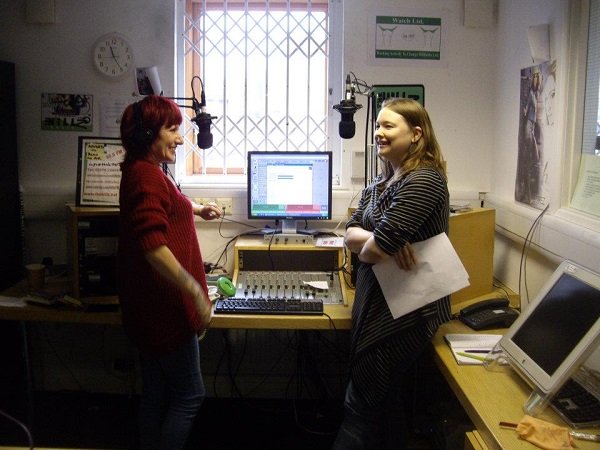Poetry Ireland Introduction Series |2| Jennifer Matthews
Jennifer Matthews writes poetry and is editor of the Long Story, Short Journal. Her poetry has been published in, or is forthcoming from Poetry International — Ireland, The Stinging Fly, Mslexia, The Pickled Body, Burning Bush 2, Abridged, Revival, Necessary Fiction, Poetry Salzburg, Foma & Fontanelles, and Cork Literary Review, and anthologised in Dedalus’s collection of immigrant poetry in Ireland, Landing Places (2010). In 2012 she read at Electric Picnic with Poetry Ireland, and had a poem shortlisted by Gwyneth Lewis in the Bridport poetry competition. Her poetry was recognised in both the 2013 and 2014 Over the Edge New Writer of the Year competitions. In 2015 she was selected for the Poetry Ireland Introductions Series. A chapbook of her poetry is forthcoming.
 So tell us a little bit about yourself?
So tell us a little bit about yourself?
I was born and raised in Missouri in the USA, and was always a voracious reader. I even wrote a very ‘serious’ science fiction story when I was 11 or 12 called ‘The Utopia Project’ centering around some sort of ecological disaster. Quite hilariously, at that time I couldn’t imagine a woman as the president, so my heroine was instead the Vice President of the USA–but she still saved the world in the end. The seeds of feminism began taking root in me, I suppose! In school I strangely assumed that I hated poetry (having never read it) until I took a creative writing class in high school. In the same year, I encountered Robert Frost’s ‘The Road Not Taken’, and I swiftly fell in love with the form.
How long have you been writing and what has the Poetry Introduction Series meant for you?
I’m slow, slow, slow. I’ve been writing for twenty years and I’m only now getting around to putting a chapbook together. The Poetry Ireland Introductions Series has been not only encouraging, but a nice kick up the backside to make me take myself more seriously.
What do you hope to explore through your poetry?
[pullquote] poetry is about struggling with unanswerable questions [/pullquote] For me, poetry is about struggling with unanswerable questions–the nagging issues that won’t leave you alone when you’re falling asleep at night; the worries that follow you through the grocery store when you’re trying to get the shop done. Another thing that drives my writing practice is the love of the aesthetic of language–the beauty of sounds and rhythms, how voice works in the delivery of a poem.
Are you currently working towards a collection? Can you tell me all about that and what you want to focus on, where you’d like to be published?
I’ve got a chapbook provisionally accepted for publication in Ireland–I’m a bit superstitious, so I’ll hold off on saying where until we’re definitely ready to go. It’s very exciting for me to begin the process of piecing together my work into a mini-collection, looking for connective threads and learning more about what I’ve been working towards. I’m a bit of a perfectionist, not in the sense that what I do is perfect, but in the sense that fear of failure is crippling. Right now a chapbook feels manageable. I do hope to pursue a full collection soon as well, so long as I feel I can proudly stand behind the work. I don’t want to put something out there that’s unedited, full of half-baked filler.

Do you think poetry is for a niche audience or do you think social media is opening it up to new possibilities?
[pullquote] ensure that the proportion of time reading and writing offline is larger than that spent online [/pullquote] Poetry is widely read in Ireland by all kinds of people. It’s often I get in a taxi and when the driver asks what I do, they then tell me about their favourite poems. Usually, however, the only contemporary work I hear about is Heaney, and most often their favourites aren’t contemporary at all–Yeats or Shakespeare. Invariably male. When I get into a taxi and the driver tells me how much they love the latest Paula Meehan, we’ll be more on track. Social media is a handy way to communicate events and publications–but it’s also a giant black hole of a time suck. It’s important for writers to establish firm boundaries with themselves (and others for that matter) when it comes to social media, and ensure that the proportion of time reading and writing offline is larger than that spent online.
What would you say has been the biggest influence on your writing? or who has been? or both?
I’m not sure I can claim influences, as I haven’t done much work with responding to specific poems as models for style or form. I read lots of traditional and contemporary poetry, but find that the desire to write, for me, comes from intense engagement with any art form. Seeing Andy Warhol’s ‘Death and Disasters’ series sent me straight to the page. Radiohead’s ‘In Rainbows’ album always puts me in a space for poetry. When I want to feel grounded I go to Elizabeth Bishop. When I want crazy gorgeous dreaming I go to Walt Whitman. When I want intellectual challenge I go to Emily Dickinson and Susan Howe. Ilya Kaminsky, Mairéad Byrne and Anamaría Crowe Serrano have all been key in showing me, as a reader, what poems can do. I think claiming any of them as an influence would be a bit …ambitious or presumptuous of me. But I have a lot to learn from them.
What do you hope to have done with your poetry in the next five to ten years?

I’d like to move firmly away from the narrative ‘I’. (Famous last words, right?) I also very much want to be more adventurous with the crafting of a poem–the way it looks on a page, experimenting with different kinds of texts, considering what lines can do, engaging more deeply in the aesthetics of poetry. I’ve got the ‘message’ side of writing down, and could probably do with being much less preachy.
What contemporary Irish poets are you impressed by?
Billy Ramsell’s ‘The Architect’s Dream of Winter’ was fantastic, and the poems I’ve seen from Leanne O’Sullivan in the last year have been breath-taking. I’ll read anything I can get my hands on from Anamaría Crowe Serrano and Mairéad Byrne. Matthew Sweeney and Eleanor Hooker have been lighthouses for those of us who prefer to move in weirder worlds. I admire what I’ve seen from Chris Murray–intense and adventurous. I’m leaving out so so many…
Do you think Ireland is starting to move away from the “typical Irish Poetry” and move towards something more contemporary? Where do you see yourself in terms of that movement?
I’m an admirer of innovative poetics. I feel sometimes I’m paddling frantically to try to keep up with those who are doing truly original work, but I like that feeling. There are lots of writers in Ireland (and Irish diaspora writers) pushing the form in unique and challenging ways. However, poetry that chimes with tradition does seem to have access to the majority of funded projects, including publications and events, and that’s worth looking at critically.
[pullquote] My concern is more for readers who are open to experiencing something challenging–it is out there. Look for it. [/pullquote] One of the ways to begin to redress that imbalance is for motivated readers to seek out the excellent work, publications, events, projects being done by those who are working their damndest to keep poetry the fresh, thriving, vibrant art that it’s meant to be. I’d like to see a lot more people who claim that they want more innovative poetry in Ireland to make the trip to the SoundEye Festival that happens in Cork annually in July. I’d like to see them buy work by Trevor Joyce, Fergal Gaynor, Rachel Warriner, James Cummins, Sarah Hayden and David Toms and create spaces for them to perform their work outside of Cork as well. To be clear, I’m not attempting to speak for that group of poets–I know they’re highly respected among the international writers who engage in innovative poetics, and probably have plenty of opportunities therein. My concern is more for readers who are open to experiencing something challenging–it is out there. Look for it. Support it by attending events and reading the publications. Fight for more funding for these kinds of events. Make them look attractive to funding bodies by actually attending them. Additional shout-outs to Christodoulos Makris and the ‘Yes But Are We Enemies’ project; Gorse journal; Chris Murray’s website; and Penny Dreadful who incorporate a wide variety of poems within every issue.
Follow her on Twitter @JenMarieMa
Photo credit for headshot: John Minihan

